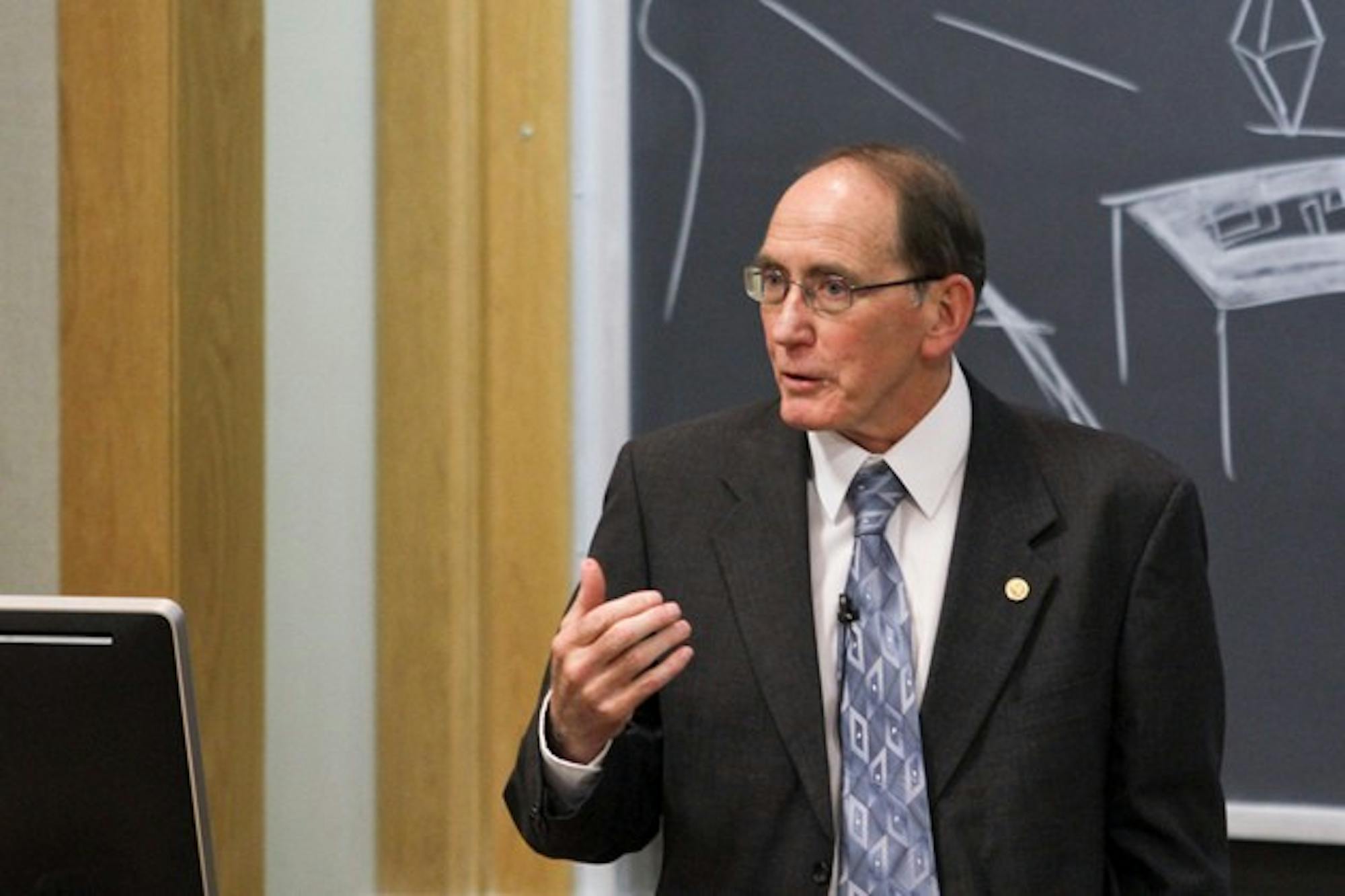After traveling to remote areas of the world, and even employing yaks to transport large blocks of ice down the Himalayan Mountains in his efforts to conduct research on climate change, Lonnie Thompson has concluded that temperatures on Earth have increased at a higher rate in the last century than they did during any other hundred year period in the last 800,000 years. Thompson presented the findings from his research in a lecture titled "Global Climate Change: A Paleoclimate Perspective from the World's Highest Mountains" to a crowded audience in Filene Auditorium on Tuesday.
Thompson presented a series of graphs that tracked the changes in temperature and precipitation in various locations throughout the world over several thousand years, data which he compiled based upon his research on ice cores, which are cylindrical sections of ice that can be used to analyze climate change over time based upon trapped air bubbles and dust.
In his presentation, Thompson outlined a sharp increase in temperature in the 20th century, highlighting Earth's current record-high temperature levels.
"You can see there's no analogue for this in history, but the real concern is where we're heading," Thompson said.
One of the most effective ways to see the effects of climate change, Thompson said, is to look at photographs of glaciers and ice caps. Thompson then showed a series of photographs which indicate melting ice at Quelccaya Ice Cap and on top of Mount Kilimanjaro. The photographs showed that 85 percent of the ice that covered Mount Kilimanjaro in 1912 had been lost by 2007, and 26 percent of the ice that had been there in 2000 has now melted, Thompson said.
Thompson said that this information most be communicated to policy makers who can enact legislation to quell greenhouse gas emissions.
"Get the facts and communicate them to your policy makers, but it's up to them to create the policies to deal with these issues," Thompson said.
Although he said that politicians from both major parties are interested in the environment and slowing climate change, Thompson described the challenge of conveying his research findings to lawmakers because of their unfamiliarity with the subject.
While describing his experiences presenting his research to the Senate, Thompson said, "It's amazing to me I don't think many of them had a science class."
People in Washington, however, are becoming more responsive to environmental concerns, Thompson said in an interview with The Dartmouth. For the first time, the United States will actively participate in the Climate Conference in Copenhagen this December, although Thompson he said he has "low expectations" for the event.
Thompson described in the interview the release of Al Gore's film "An Inconvenient Truth" and the 2007 Intergovernmental Panel on Climate Change as turning points in efforts to address the issue of climate change.
Thompson emphasized the importance of actions that individuals can take such as turning down furnaces, using certain types of light, riding bikes as opposed to driving cars and driving cars that are either hybrid or electric that will help reduce carbon emissions and energy consumption.
"At the same time, the government has to pass legislation that makes it economically viable to reduce emissions," Thompson said in the interview. "It's going to take a national policy to get everyone on the same page."
Thompson suggested a carbon tax or carbon trading policy as possible policies for effectively reducing emissions, and stressed the need to pursue alternative sources of energy, especially solar power.
Thompson, a scientist at the Byrd Polar Research Center at The Ohio State University, won the Tyler Prize for Environmental Achievement in 2005 and the National Medal of Science in 2007.
The talk was part of a lecture series about the environment sponsored by The John Sloan Dickey Center for International Understanding to kickoff the launch of the Integrative Graduate Education and Research Traineeship, a new program available to graduate students at Dartmouth.




